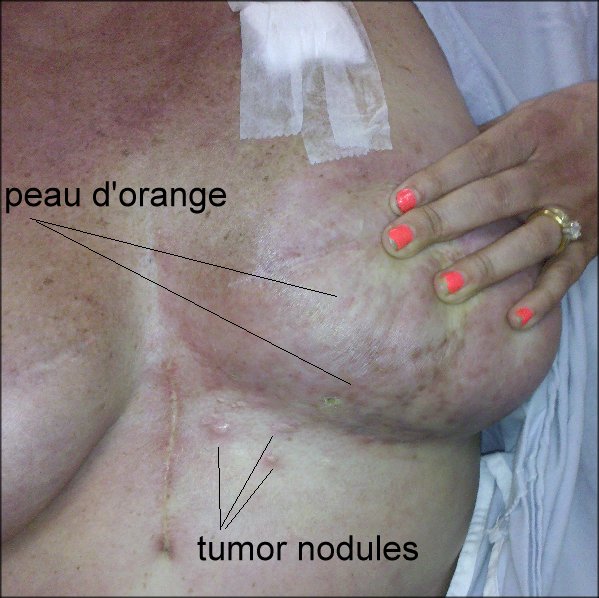In stage 3c there may not be a tumor in the breast.
Breast cancer in chest wall prognosis.
The tumor may be any size and cancer has invaded the chest wall or breast skin with evidence of swelling inflammation or ulcers such as with cases like inflammatory breast cancer the breast cancer may also have invaded up to 9 nearby lymph nodes.
Surgery is often necessary and may be followed by plastic surgery reconstruction to recreate a normal appearance.
The most common benign tumors are osteochondromas and chrondromas.
Signs and symptoms of local recurrence on the chest wall after a mastectomy may include.
Prognosis the overall 10 year survival rate for breast cancer with a chest wall recurrence is around 50 percent but that may now be changing with the introduction of better treatment options.
Symptoms of chest wall pain.
The most common malignant chest wall tumors are sarcomas.
A regional breast cancer recurrence means the cancer has come back in the nearby lymph nodes.
The amount of time elapsed between the initial breast cancer and the locoregional recurrence plays an important role in survival.
A new area of thickening along or near the mastectomy scar.
Inflammatory breast cancer is always at least stage 3b.
Other chest wall cancers include metastatic cancer desmoid tumor and neurogenic tumors.
Tumors in the chest wall typically manifest as painful quickly growing and easily palpable masses.
One or more painless nodules on or under the skin of your chest wall.
High nuclear grade basal phenotype and advanced stage at presentation.
The pain can be on one side in a specific area or around a wide area of the breast.
Cancerous tumors are uncommon.
These recurrences are often linked to a short disease free interval combined with high risk features of the original breast cancer.
Chest wall tumors whether malignant cancerous or benign non cancerous are classified as primary or secondary metastatic.
Primary tumors originate in the bone or muscle of the chest wall.
It may be burning or sharp may spread down the arm and can be worse when you move.

